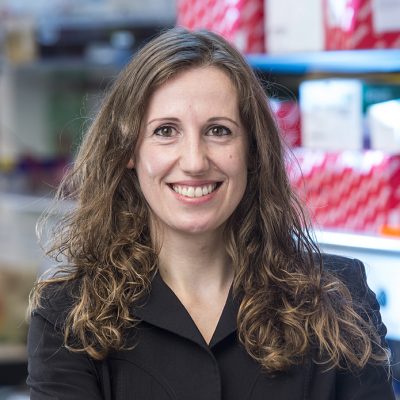Inflammation is the driver of most newborn disease, particularly in preterm babies. Early diagnosis of the underlying cause of inflammation in newborns is difficult and there are limited safe and effective treatments. The Nold team is developing novel diagnostics and treatments to close this gap for vulnerable newborns.
Overview | Inflammation in newborns
Preterm delivery exposes 13.4 million babies worldwide and around 26,000 in Australia to serious early-life diseases every year. Inflammation is a major driver of newborn disease and is of critical importance in 13 of the 16 leading causes of death for children under the age of five worldwide. Newborns who survive are at risk for a range of short and long-term disabilities.
The Nold group of clinicians and scientists aim to better understand how inflammation drives newborn and early-life diseases of the premature heart and lung such as bronchopulmonary dysplasia (BPD), pulmonary hypertension associated with BPD (BPD-PH) and necrotising enterocolitis (NEC) affecting the immature gut.
Their goal is to generate novel immunological insights in the field of newborn and early-life disease, which will assist in the design of new diagnostic techniques and underpin the development of innovative anti-inflammatory drugs. The mission is to advance in the care of infants and children, making a life-long difference to the lives of vulnerable infants.
“Our goal is to progress the development of safe and effective therapies that give pediatric patients a chance for the healthy and happy future they deserve.” Professor Claudia Nold
Diseases we research
Areas of focus
- Novel anti-inflammatory therapies to improve child health
- Diagnostic innovations for preterm babies, our tiniest patients
Research Group Head | Professor Claudia Nold, Professor Marcel Nold
Inflammatory diseases in vulnerable newborns can be life-threatening, and those who survive often face lifelong health problems. By investigating how harmful inflammation takes hold in newborns, my goal is to discover new therapies that save lives and improve life-long health.

Meet the team

 Dr Ina Rudloff
Research Scientist
Dr Ina Rudloff
Research Scientist
 Dr Christine Bui
Honorary Research Associate
Dr Christine Bui
Honorary Research Associate
 Dr Michael Christie
Honorary Research Associate
Dr Michael Christie
Honorary Research Associate
 Dr Nadia Deen
Honorary Research Associate
Dr Nadia Deen
Honorary Research Associate
 Marie Lee
Research Support Staff
Marie Lee
Research Support Staff
 Esteban Pinto
Research Support Staff
Esteban Pinto
Research Support Staff
 Sara Di Simone
PhD Student
Sara Di Simone
PhD Student
 Steven Garrick
PhD Student
Steven Garrick
PhD Student
 Josephine Owen
PhD Student
Josephine Owen
PhD Student
 Briana Peterson
PhD Student
Briana Peterson
PhD Student
 Dr Ralley Prentice
PhD Student
Dr Ralley Prentice
PhD Student
 Holly Ung
PhD Student
Holly Ung
PhD Student
 Dr Elly Green
PhD Student
Dr Elly Green
PhD Student
News from the lab
Student opportunities

Collaborators

Publication highlights


